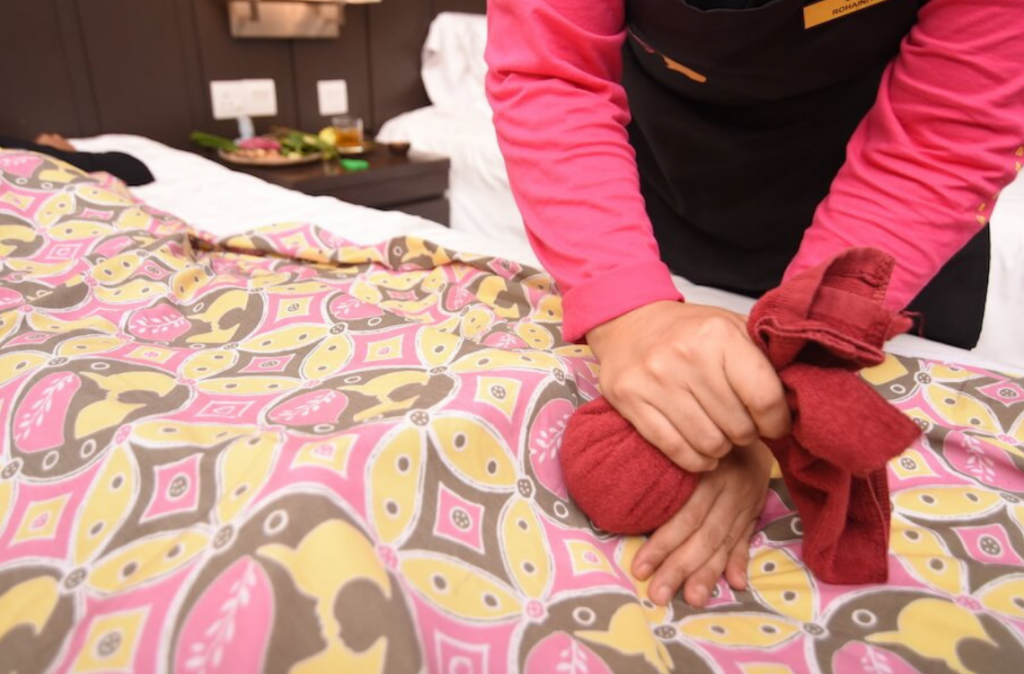Confinement is a period for your body to recuperate and recover from childbirth. The idea of confinement is familiar to Asians but foreign to Westerners. In the past when infant and maternal mortality rates were high, it was a practice to keep both the baby and mother indoors during the period of confinement. This was meant to protect them from ill health in the future.
Highlighted
So, what can be done and should be avoided?
- Bathing, washing hair and going out are traditionally DISCOURAGED during confinement.
Every community, Chinese, Indian & Malay, have a number of practices for the mother and the newborn baby during the confinement period. The basis for such practices is to protect the new mother from future ill health, restore her strength and protect the family from ritual pollution.
Following are some of the confinement practices observed by these communities:
Chinese Practices
The Chinese believe in staying indoors throughout the confinement period to avoid outdoor pollution. Strenuous physical activities are discouraged to prevent further “muscle weakening”. Some hire a confinement nanny to help with the housework and caring for the baby. Other practices may include:
- Not washing the body or hair during the month; especially avoiding contact with cold water.
- Not going outside for the entire month (or at least avoid wind).
- Not eating raw or “cooling” foods, or foods cooked the previous day.
- Eat chicken, especially chicken cooked in sesame oil; pork liver and kidney are also good; eat five or six meals daily and rinse the rice bowl with scalding water.
- Avoid all wind, fans and air- conditioning.
- Avoid walking or moving about; ideally is to lie on the back in bed.
- Do not go into another person’s home.
- Do not get sick.
- Do not read or cry.
- Do not have sex.
- Do not eat with family members.
- Do not burn incense or visit a temple or altar.
Malay Practices
Traditionally, childbirth is in the mother’s home attended by a ‘bidan’ (Malay midwife) and the umbilical stump dusted with a mixture of spices. Fortunately, this has been replaced by hospital births that reduce complications and infection rates. Immediately after birth, both mother and baby should be bathed in heated water filled with herbs.
The mother should “keep warm” through various traditional methods. These may include sitting near to or lying above a heat source or warming the abdomen by applying a heated stone over it.
During this confinement period, a female masseuse is engaged to help the mother regain her figure or at least to keep her extended tummy trim. The practice of tightly binding the tummy is called “berbengkong”, and is believed to help in maintaining the body shape.
Sex is also strictly prohibited during the confinement period.
Indian Practices
Indian mothers are also discouraged from leaving their homes during their confinement period. Bathing is discouraged and if done, it should be performed with special herbal preparations and turmeric powder. Bathing is only allowed between 11 am and 2 pm when the temperature is at its highest. Daily body massages with oil are also encouraged.
- Not allowed to enter the prayer altar room.
- Warm water is splashed on the abdomen during bathing to expel clots from the uterus.
- Washing of hair is done on odd days; i.e. day 3,5,7… during the first two weeks. Dry hair after washing with incense smoke.
- Place incense smoke in between legs to dry episiotomy wound.
- Binding of tummy with six feet cloth.
- Sex is strictly prohibited.
These are among the confinement practices that are still observed in our community. Share with us your comment and feedback below!
For more parenting tips, visit Motherhood.com.my!
